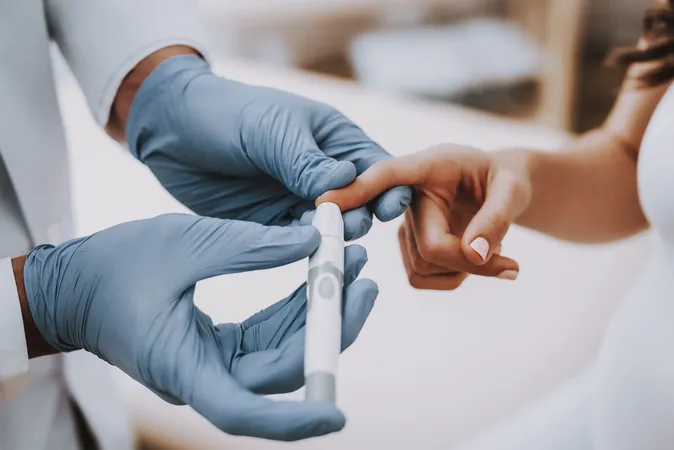
Shock Discovery: Diabetes-Linked Biomarker Raises Liver Cancer Risk!
2025-04-14
Author: Li
Groundbreaking Research Links Inflammatory Biomarker to Liver Cancer
In a stunning revelation, researchers have uncovered that YKL-40, an inflammatory biomarker frequently elevated in type 2 diabetes patients, significantly escalates the risks of liver and bladder cancers. This compelling finding, published in the *British Journal of Cancer*, positions YKL-40 as a vital predictor for liver cancer prognosis.
What is YKL-40?
YKL-40 is not just a random protein; it plays a pivotal role in many cancers, including liver and colorectal types, by facilitating tumor growth and aiding in immune evasion. Interestingly, studies indicate that inhibiting YKL-40 can curb cancer progression, opening doors for potential therapeutic avenues.
The Study Unveiled: Analyzing YKL-40 Levels
This research aimed to fill a critical gap by examining the association between YKL-40 levels, type 2 diabetes, and cancer risk. Drawing data from the Danish Centre for Strategic Research in Type 2 Diabetes, the study included over 11,000 recently diagnosed patients, tracked over a median follow-up period of nine years.
Alarming Findings: Cancer Incidence Linked to YKL-40
Among the participants, 362 developed obesity-related cancers, including 56 liver cancers and 204 colorectal cancers. Notably, higher YKL-40 levels correlated with longer diabetes duration and other risk factors, such as obesity and smoking. The alarming results demonstrated that those in the highest percentile of YKL-40 faced over 44 times greater risk of liver cancer!
YKL-40 vs. CRP: A Tale of Two Biomarkers
While both YKL-40 and C-reactive protein (CRP) showed strong correlations to various cancers, YKL-40 outmaximized CRP's predictions specifically for liver and bladder cancers—making it a more robust marker for these types. However, CRP excelled in predicting lung and colorectal cancers, highlighting the unique prognostic capabilities of each biomarker.
Implications of the Study
The findings from this extensive research underscore the urgency of monitoring YKL-40 levels in diabetic patients. The ability to predict cancer risks based on this biomarker could revolutionize early detection and treatment strategies, potentially saving lives.
Final Thoughts: A Call to Action
With diabetes rates soaring globally, understanding the implications of biomarkers like YKL-40 becomes ever more crucial. As researchers delve deeper, this study paints a clear picture: YKL-40 could be a game changer in cancer prognosis among those battling type 2 diabetes.



 Brasil (PT)
Brasil (PT)
 Canada (EN)
Canada (EN)
 Chile (ES)
Chile (ES)
 Česko (CS)
Česko (CS)
 대한민국 (KO)
대한민국 (KO)
 España (ES)
España (ES)
 France (FR)
France (FR)
 Hong Kong (EN)
Hong Kong (EN)
 Italia (IT)
Italia (IT)
 日本 (JA)
日本 (JA)
 Magyarország (HU)
Magyarország (HU)
 Norge (NO)
Norge (NO)
 Polska (PL)
Polska (PL)
 Schweiz (DE)
Schweiz (DE)
 Singapore (EN)
Singapore (EN)
 Sverige (SV)
Sverige (SV)
 Suomi (FI)
Suomi (FI)
 Türkiye (TR)
Türkiye (TR)
 الإمارات العربية المتحدة (AR)
الإمارات العربية المتحدة (AR)